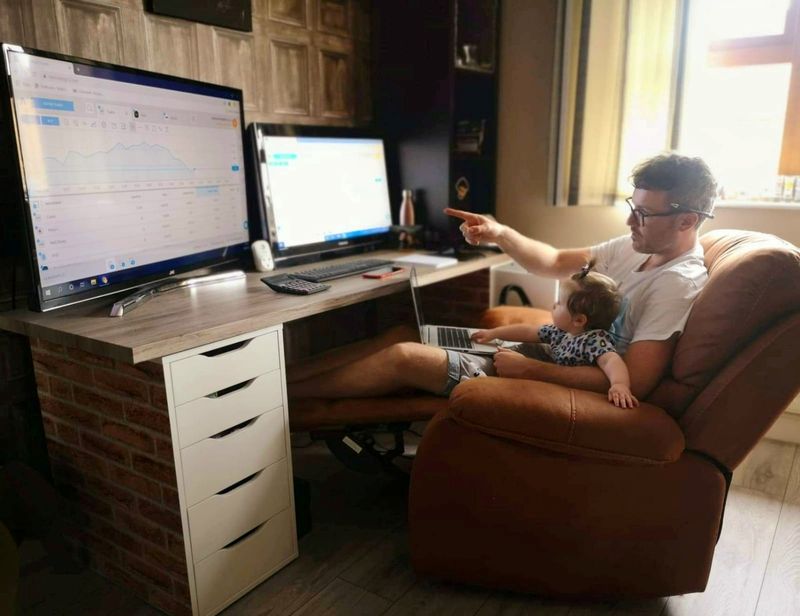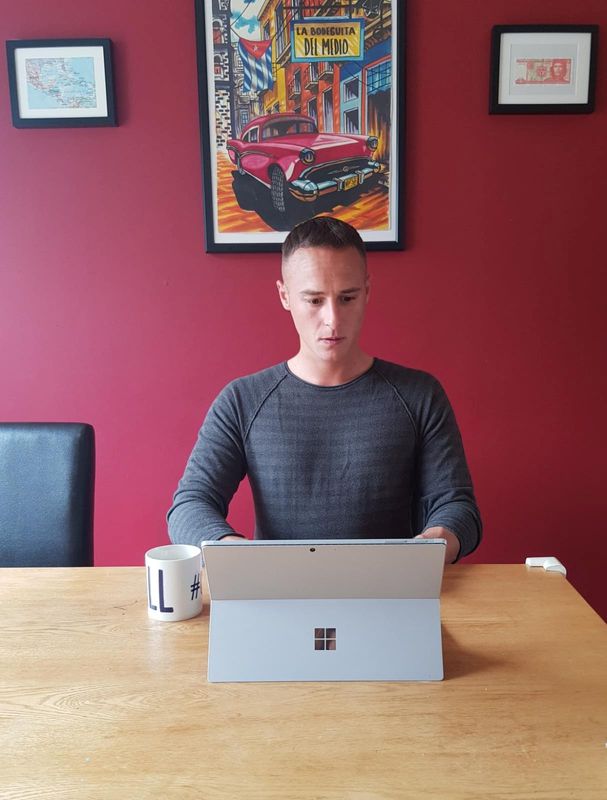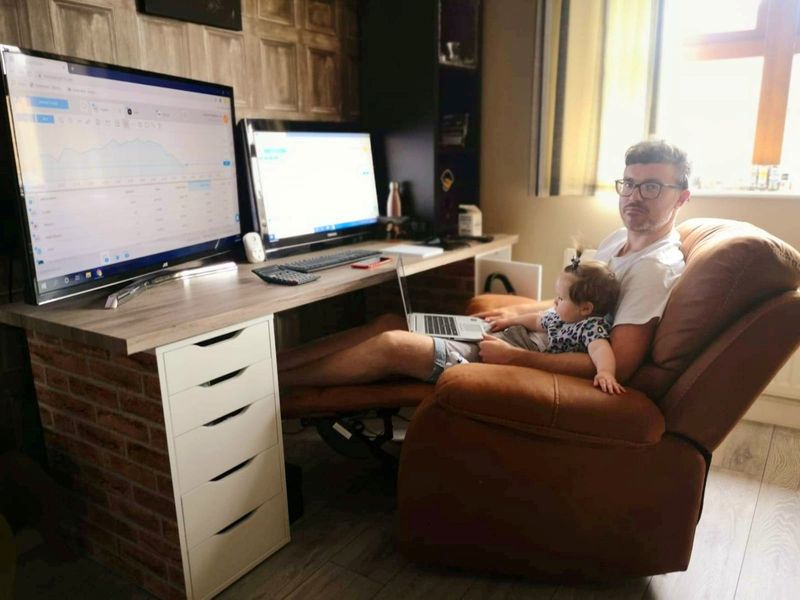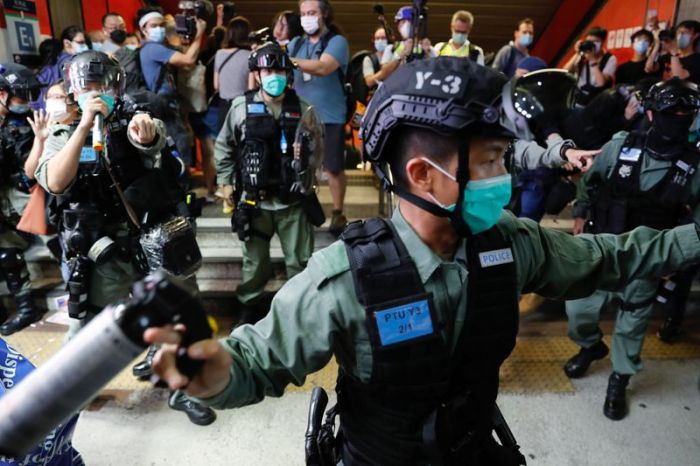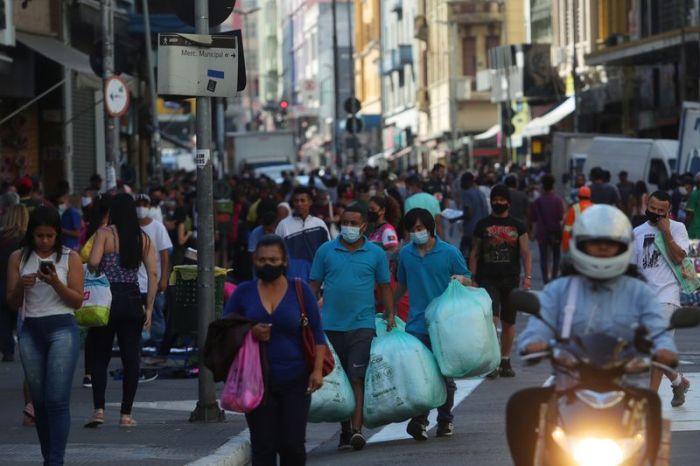STOCKHOLM (Reuters) – At 7am on Friday morning, Dean d’Arco, 31, a phone shop manager from Belfast, Northern Ireland, logged on for his last day as a round-the-clock armchair stock market trader.
During almost three months on coronavirus furlough, he was one of a swelling number of stuck-at-home punters using their free time to ride a climbing stock market which rebounded after a giant slump in March.
As lockdown lifts, d’Arco is now returning to work, but he doesn’t plan on giving up his new-found interest in financial markets entirely.
“It’s given me a routine, a reason to get out of bed in the morning,” d’Arco said of his time on furlough, adding that his new hobby was also a welcome social activity.
Along with his friend Damian McVeigh, 31, the pair put in 70-plus hours a week on trading apps, staking a substantial part of their savings in the process, despite neither having prior experience in financial markets.
“I only play with savings I can afford to lose and I’ve made a good return and have no regrets,” McVeigh, who is a quantity-surveyor by trade, said.
Around the world, online retail brokers are booming this year, with global app eToro increasing new account openings by 400%, compared to the same period last year.
EToro customers invested $300 billion in Q1, part of a global surge in activity on retail trading platforms which played a role in the recent stock market rally.
“We began to see record levels of activity when the coronavirus pandemic started,” said Johanna Kull, an economist for Swedish trading app Avanza.
“Stock market gains have mostly been led by government and central bank stimulus, but increased retail trading activity has pushed up prices and caused volatility in specific small cap stocks,” she said.
McVeigh said he has invested around 5000 pounds ($6,300) and made a 20% profit by trading around 80 companies and commodities such as oil.
A WhatsApp messenger group chat set up to plan a now-cancelled holiday became an active stock market discussion forum when McVeigh started talking about the plight of his ex-employer, a listed company he had staff shares in.
“FEELS LIKE BETTING”
Fuelled by the stimulus packages, trading indexes have rallied hard since lows in March, with the Nasdaq last week briefly beating the 10,000 mark for the first time.
Two weeks ago, a flurry of activity was seen in bankrupt or soon-to-be-bankrupt stocks with Hertz <HTZ.N>, Chesapeake <CHK.N>, Whiting <WLL.N> and JC Penney rising 300% to 500% before pulling back a bit, leaving seasoned traders scratching their heads.
“It feels like betting when it comes to struggling companies,” said McVeigh, who bought shares in Valaris, a company which he doesn’t expect to survive but still made him a profit.
The pair say that in general, though, buying stocks feels different to gambling because it is not a win-or-lose proposition like betting on the outcome of a football match.
More recently, anxiety about a second wave of coronavirus infections has hit markets, with the S&P 500 last week suffering its worst weekly decline since March 20.
“I didn’t get too badly caught by the big dip. I took most of my capital out when some stocks rose beyond their pre-pandemic level, as that just felt unnatural to me,” said McVeigh, adding he wished he’d taken out all his funds.
Both men said it will be impossible to trade as intensely when they return to work, so they plan to change their trading strategy to focus on long-term stocks.
“The way things are now, if you take your eyes off it for a moment you can lose serious cash,” McVeigh said, adding: “But I won’t stop, I enjoy it too much.”
D’Arco said he plans to buy into innovative tech companies, ones he calls “future game changers”.
McVeigh, the more pragmatic of pair, said: “I expect there to be a crash soon. I plan on picking up undervalued stocks when that happens and hold them for long-term gain.”
(Reporting by Colm Fulton; Editing by Toby Chopra)

